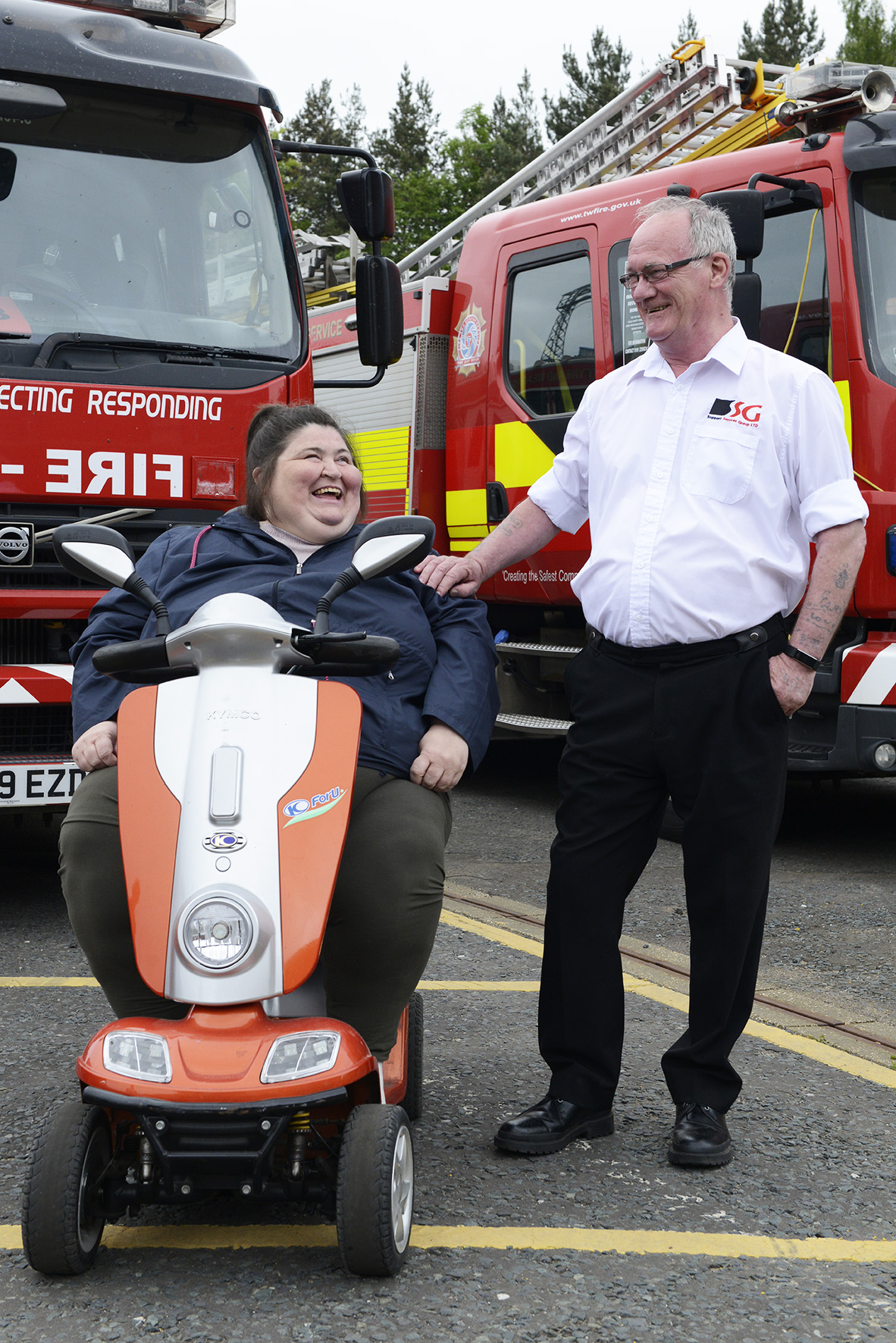HIV: getting over the fear

An estimated 1.2 million people in the US are living with HIV. But research shows that many of them – about 13% – don’t know. According to the CDC, nearly 40% of new HIV infections are transmitted by people who do not know they have the virus.
There are several reasons that may prevent people from getting tested for HIV. Fear of illness, stigma and being discriminated against or judged negative if a test shows they have HIV are some of the obstacles.
But getting a test is the first step to knowing your status. That’s important information that will help you take charge of your health and avoid the viral infection that AIDS can cause.
For Kelly Gluckman of Seattle, HIV was the last thing on her mind when she stopped using condoms with her partner without getting tested for HIV first.
“I knew that wasn’t the smartest decision,” says Gluckman, now in his 30s.
She was 23 at the time, and while she was aware of HIV testing through comprehensive school sex education, she says as a “white, straight woman,” she never saw herself at risk for HIV. But after about 6 months of unprotected sex, Gluckman and her partner decided to get tested to rule out HIV as a precaution.
“We both tested positive on Oct. 25, 2010,” says Gluckman. “We were both pretty devastated.”
“The immediate thought was, ‘Oh my God, I’m dying.’ I was faced with mortality, because ‘HIV turns into AIDS and then you die.’ That’s exactly what I was taught from what I saw in the media and what I learned in school,” says Gluckman.
In retrospect, Gluckman says denial played a role in her and her partner’s hesitation to get an HIV test.
“We’d talk about going and getting tested and then we just wouldn’t do it,” she says.
Many people still have a “narrow view” of HIV, says David Pantalone, PhD, a psychology professor at the University of Massachusetts in Boston. He thinks it has something to do with outdated images and stories about HIV from the 1980s.
“I don’t think there’s a revised public perception of what it’s like to have HIV,” says Pantalone. “The reason is that what it looks like now to have HIV is essentially the same as not having HIV. The data on life expectancy between HIV-positive people and HIV-negative people are not that different.”
Although there is no cure for HIV, the treatment, antiretroviral therapy (ART), is very effective. It lowers the amount of the HIV virus in your body, or your viral load. If you take the medicine as directed by your doctor, the viral load may become so low that it is no longer detectable on an HIV test. When this happens, there is little to no chance of developing symptoms of the infection or spreading it to others. You can usually get HIV under control with medication in just under 6 months.
Gluckman saw positive results soon after she started taking her medication.
“My viral load went undetectable within 2 months,” says Gluckman, adding that she had no side effects.
“I thought, ‘Oh my God, I’m going to live. I can be healthy with this thing, with this virus.’”
The CDC recommends that everyone between the ages of 13 and 64 have an HIV test at least once in their lifetime. You can usually do this during your annual health check. If you haven’t had the test, ask your doctor.
If you are at higher risk, you should get tested more often: every 3 or 6 months to be sure. But Pantalone says the lack of testing is also a result of people confusing the high risk for the disease with “fitting into an identity” when it’s a virus spread through common human behavior, such as having sex.
“If you have had condomless sex with someone, you need an HIV test. Even if it’s low risk, you should still do it regularly because you never know,” says Pantalone.
You are at greater risk for HIV if you can answer “yes” to any of the following questions, according to the CDC:
- Are you a man who has had sex with another man?
- Have you had sex – anal or vaginal – with someone who has HIV?
- Have you had more than one sex partner since your last HIV test?
- Have you shared needles, injectable drugs or other drug injecting equipment with others?
- Have you had sex in exchange for drugs or money?
- Have you been diagnosed with or treated for any other sexually transmitted disease?
- Have you been diagnosed with or treated for hepatitis or tuberculosis (TB)?
- Have you had sex with someone whose sexual history you don’t know?
If any of these apply to you, you may benefit from an annual HIV test, even if your last test was negative.
If you are pregnant, ask your doctor for an HIV test. If you have HIV when you become pregnant, tell your doctor as soon as possible. Your doctor can give you the right medicines to keep you and your baby healthy.
It is also good practice to get tested for HIV and know your status before having sex with a new partner for the first time. It’s always a good idea to ask about their history of sexual and drug use before having sex. If you know you have HIV, tell them your status. If you are unsure about your or your partner’s HIV status, make sure you wear a condom. This can help protect your health or prevent others from getting the infection.
If you think you have been exposed to HIV or have symptoms that you think may be symptoms, contact your doctor as soon as possible. Getting an HIV test or talking to your doctor about HIV can be both uncomfortable and stressful. But being prepared can help you cope better.
Bring a list of questions so you get the most reliable information. This can help your doctor create a treatment plan if you have HIV.
Even if you find out you don’t have HIV, it’s a good time to ask questions and learn more about how you can help prevent HIV infection. You may have heard of pre-exposure prophylaxis (PrEP) for HIV, which can help prevent you from getting HIV. You can ask questions like:
- How can I protect myself against HIV?
- How often should I get tested?
- Does my sex partner also need a test?
- Do you offer HIV prevention counseling or recommend a place that does?
If you don’t want to go alone, ask a friend or family member to go with you for support. If you are diagnosed with HIV, there are many ways your doctor can guide you to get the help and treatment you need to get the infection under control.
If you’re trying to persuade a close friend or loved one to get tested for HIV, Pantalone says it can help to get them to think about how knowing their HIV status or getting tested for it might help prevent the spread to others. people they know. .
Stigma and lack of proper care can exist even among caregivers. But don’t let that stop you from getting tested or getting preventative care or treatment.
If you have a place you go for health care and want to get tested for HIV, talk to your health care provider. “And if that provider doesn’t support, switch,” says Pantalone. “Going to an organization that specifically serves the HIV community is a great way to be welcomed with open arms and without judgment.”
If you test positive for HIV, Gluckman says, it’s important to remember that you’re more than that.
“You’re worthy of respect, you’re worthy of love, you’re worthy of health, you’re worthy of good sex,” says Gluckman. “HIV is just the virus.”
Stay connected with us on social media platform for instant update click here to join our Facebook













